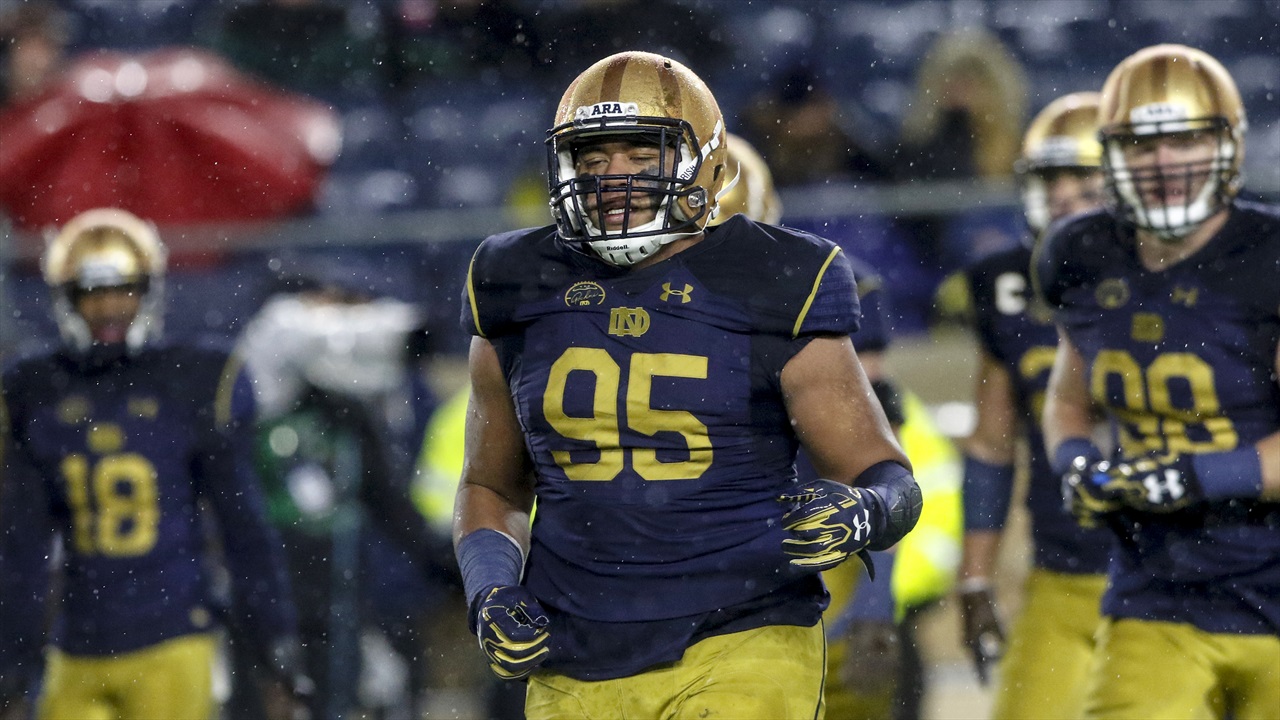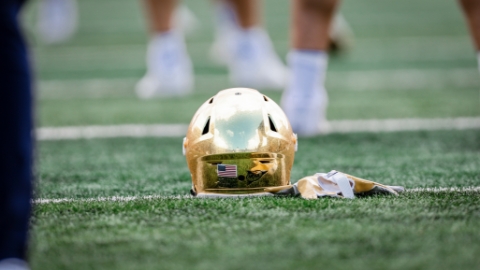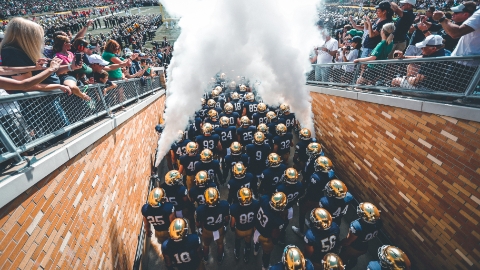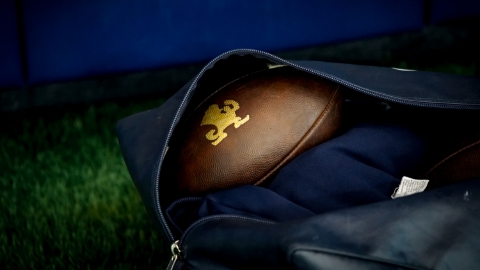
Tom Brady is an exception. He is the ultimate exception. 6th round picks don’t often make a significant impact in the NFL. Most struggle to make the team or stay in the league for more than a few years. Brady is different. He is the late round pick that became (arguably) the best quarterback ever. He’s different than not just most of the others, but pretty much all of them.
The late round pick equivalent in college football is the late offer. The recruit who gets an offer late in the game because he is overlooked or a program missed out on who they originally wanted. They are the 6th round picks of college football. On rare occasions they become great. But mostly programs are hoping that they become contributors.
When a staff is rushing towards the end of the process to either fill needs or adjust to departures on the roster, they have to open up the board to new prospects that they weren’t previously pursuing. That means there’s often a scramble to identify prospects and an even greater challenge to get those prospects interested in visiting when it’s December or January.
It’s not an easy task to execute. Sometimes things work out and other times they don’t. Brian Kelly’s staff has had to go through this process three times since he’s been at Notre Dame. The results of the first couple of times the staff had to do it were mixed. The most recent time looks like it might have worked out really well.
The first time was when he started on the job and they had to fill out the rest of his first class. Him and the staff at the time missed on a bunch of those late additions to the recruiting class that they offered after taking the job. That was pretty much a guarantee to happen, though, because there were too many open spots that needed to be filled in too little time.
Quarterback Luke Massa, offensive tackle Tate Nichols, safety Derek Roback, and defensive lineman Bruce Heggie never became contributors (aside from Massa becoming a holder on field goals and PATs). I don’t know if it’s entirely fair to criticize Kelly for them due to the circumstances, but the fact that late offers like linebacker Danny Spond, defensive lineman Kona Schwenke, and safety Austin Collnsworth became valuable to the team over the course of their careers was certainly a positive.
If not for an early retirement from Spond and injuries to Collinsworth, then the late additions in that first class would have been viewed even better than they are now.
The 2014 class had to deal with two coordinator changes and a significant schematic change on defense. After Bob Diaco and his laissez-faire approach to recruiting left, Brian VanGorder came in with a 4-3 defense and a severe need at defensive tackle.
That forced the staff to go after a few late in the game. They ended up landing two of them.
Pete Mokwuah never played a significant down for the Irish in his four years and is now planning on being a graduate transfer. Daniel Cage’s career was shortened by concussions, but he was a valuable rotation player at one technique and also an occasional starter. For a player they went after that late in the game, he ended up being a very important player for the Irish from 2014-2016.
After a 4-8 season caused Kelly to reboot the program as a whole after 2016, the staff was in an almost similar situation to when Kelly took over in 2010 with having to establish new relationships and fill needs at several positions.
They might not have landed the players at corner that they hoped to, but it appears they did a good job with the five they swayed to the Irish in January. We already know that two of them are on track to be significant pieces of the defense in the next couple of years with defensive tackle Myron Tagovailoa-Amosa and safety Jordan Genmark Heath. Both played this season and flashed enough to show great potential.
The three others that redshirted (Rover Jeremiah Owusu-Koramoah, end Kofi Wardlow, and Jafar Armstrong) all showed good signs of things to come in fall camp before the season. If Notre Dame goes at least two for three with that group, then Irish fans should praise the staff for turning a bad situation into a good one under tough circumstances.
Notre Dame is in a pinch again this recruiting cycle due to a few defensive tackles and running backs no longer being a part of the program. They had to reach out to some backs and D-tackles late because of it and are hoping to add one at each position on signing day.
That one back right now would be an overlooked runner in C’Bo Flemister. If he ends up Irish, then I think it would be a steal. With the depth chart opening up after CJ Holmes and Deon McIntosh gone, Flemister has the talent to find himself heavily in the mix in 2019.
The defensive tackle would be Derek Eason. He might take a bit more time to find his game at the next level. He needs quite a bit of work with his technique and consistency. He also needs to get bigger and more physically prepared to play college football. The raw tools are there for him to become a player if he works at it, though. He has a massive frame and has exciting long term potential if he puts it all together.
Players like Spond, Cage, and MTA are perfect examples of why late offers should not simply be considered filler for the back end of the roster. Some have the potential to be much more than that as I think we’ll see with a few of the late additions in 2017.
There really isn’t anything like the feeling of winning a big recruiting battle on signing day for someone that has been pursued for a year or longer. So if Notre Dame gets a Manti Te’o like decision from Nicholas Petit-Frere on Wednesday, of course Irish fans should feel over the moon about that development.
But don’t sleep on the late offers that they may pick up as well. It may be unlikely that they ever become a star like Te’o, but they may just help Notre Dame win quite a few football games over the next four or five years.


